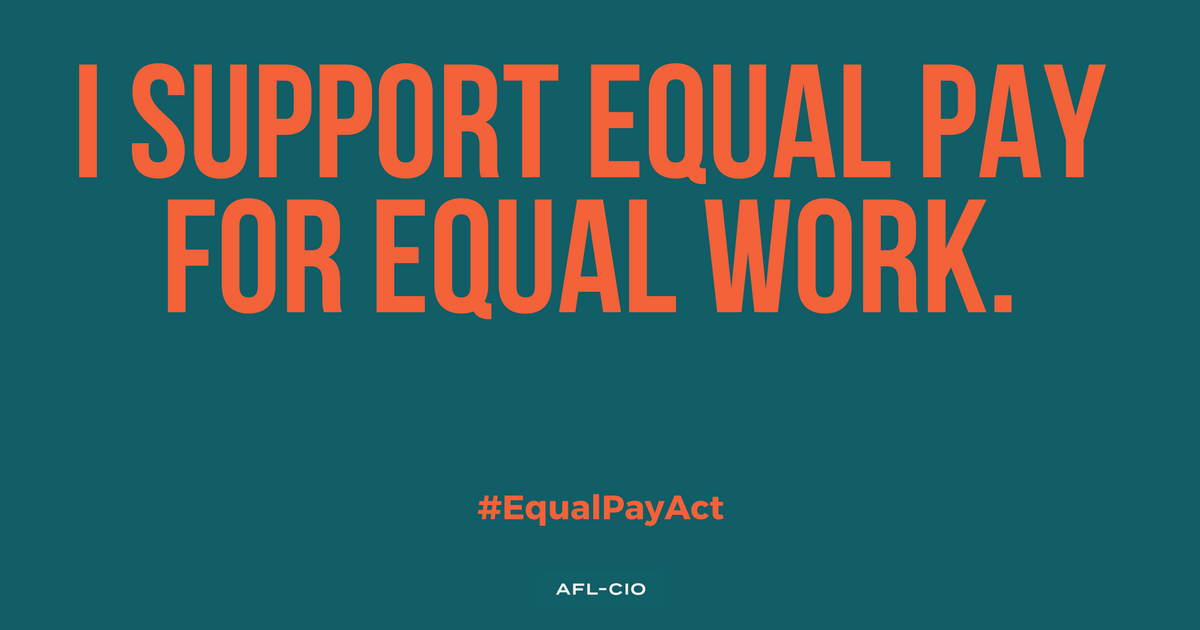
Today is the 54th anniversary of the passage of the Equal Pay Act, the 1963 law that prohibits employers from paying men and women different wages for the same work solely based on sex. The Equal Pay Act’s passage is an important example of the labor movement’s long history of partnering with progressive women’s organizations to advocate for equal pay for women. Indeed, Esther Peterson—one of the labor movement’s greatest sheroes—was instrumental in the enactment of this landmark legislation.
Pay equity and transparency are bread and butter issues for working women; when they come together to negotiate collectively for fair wages and important benefits, like access to health insurance and paid leave, they can better support their families. (Indeed, women in unions experience a smaller wage gap than women without a union voice).
Since the passage of the EPA, the gender wage gap has narrowed, but it persists. Women overall typically are paid 80 cents for every dollar paid to their male counterparts, and that number has barely changed in the past 10 years. And the gap is even larger when you compare the earnings of women of color to white men.
Clearly, we still have much to do to ensure pay equity, and there’s been some progress, thanks to tireless working women and their allies across the country. For instance, in the past two years, more than half the states have introduced or passed their own remedies to increase pay transparency, strengthen employer accountability and empower working people to take action against pay discrimination. But stronger protection from pay discrimination shouldn’t depend on where you happen to live or where you work. Working women deserve a national solution.
That’s why the AFL-CIO, the National Women’s Law Center and countless other organizations support the Paycheck Fairness Act, part of a comprehensive women’s economic agenda. The PFA would strengthen the EPA by: protecting employees from retaliation for discussing pay; limiting the ability of employers to claim pay differences are based on “factors other than sex”; prohibiting employers from relying on a prospective employee’s wage history in determining compensation; strengthening individual and collective remedies against employers who discriminate; and increasing the data collection and enforcement capacity of key federal agencies.
Let’s not forget that raising the federal minimum wage also would boost women’s earnings in a big way. A driving factor in the gender wage gap is women’s overwhelming majority representation (two-thirds of workers) in minimum wage jobs, including those who pay the lower-tipped minimum wage. Legislation like the Raise the Wage Act would give women the well-deserved raise they’ve earned.
We need strong policy solutions like the Paycheck Fairness Act and the Raise the Wage Act to help close the gender wage gap. Working women and the families who depend on them can’t afford to wait another 54 years.
Fatima Goss Graves is the senior vice president for program and president-elect at the National Women’s Law Center. In her current role, she leads the center’s broad agenda to eliminate barriers in employment, education, health care and reproductive rights and lift women and families out of poverty. Prior to joining the center,, she worked in private practice and clerked for the Honorable Diane P. Wood on the 7th U.S. Circuit Court of Appeals.


